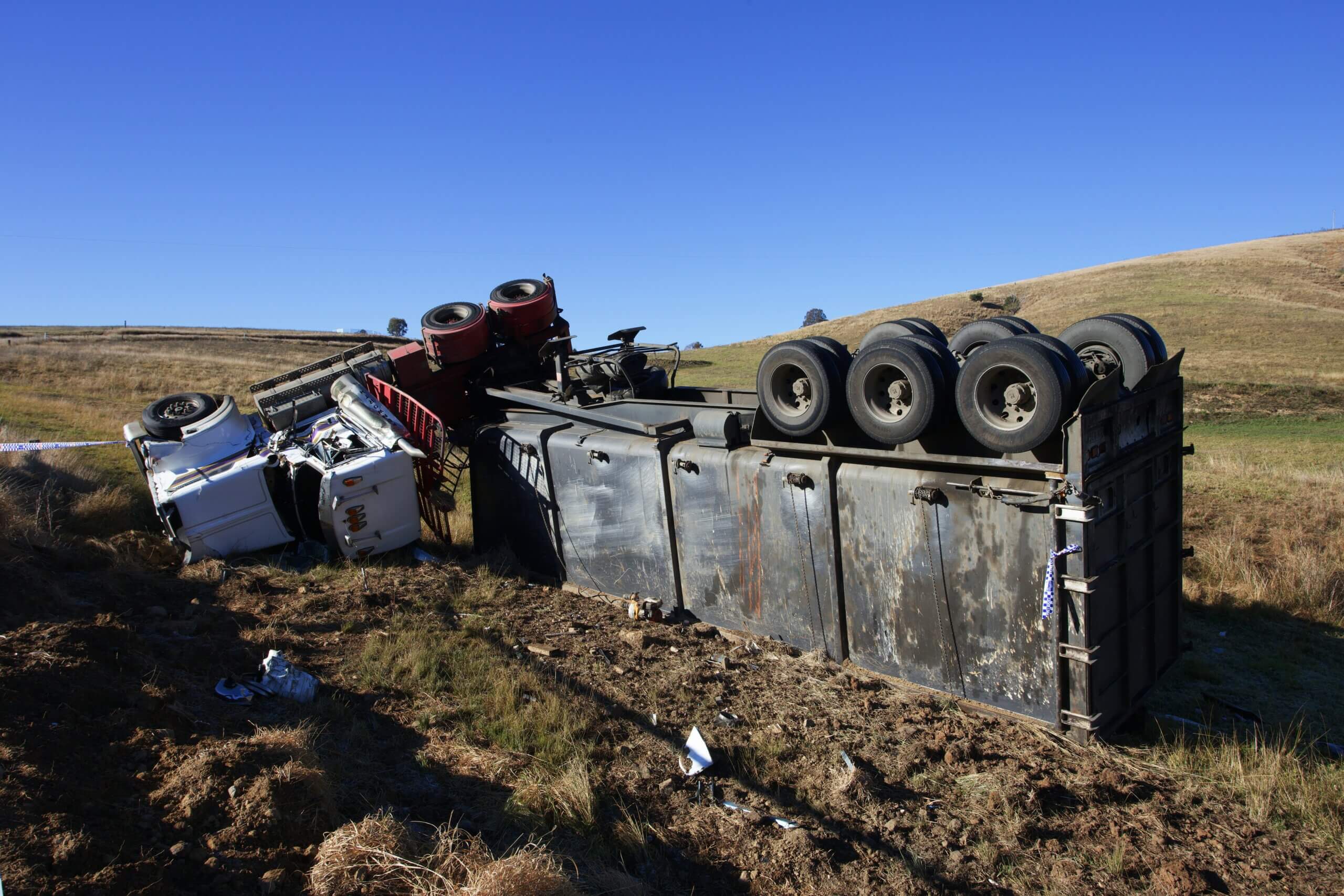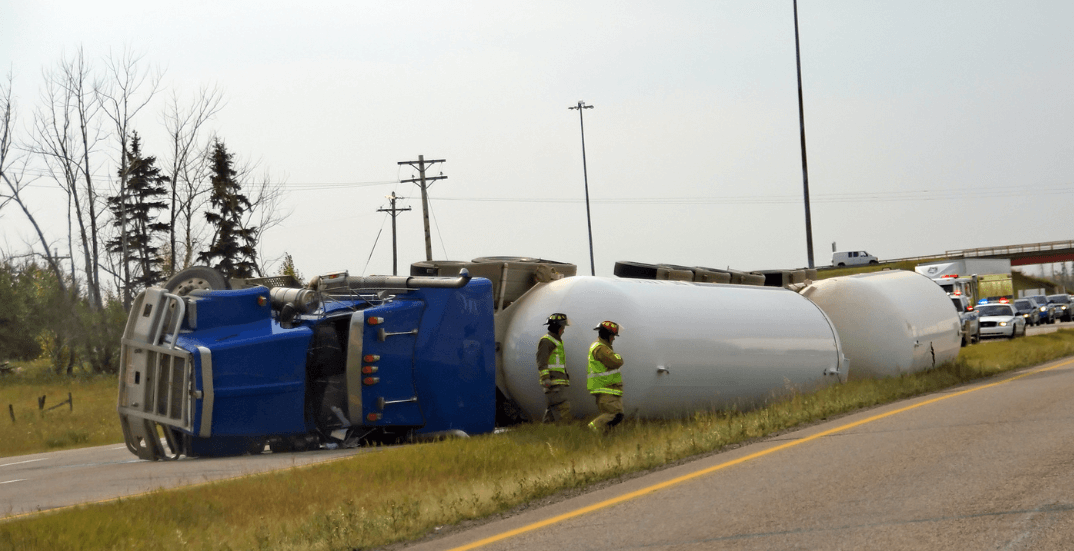
Partner at AKD Lawyers
Practice Areas: Personal Injury

Car and truck accidents may both involve vehicles on the road, but how those cases unfold legally, financially, and procedurally is far from the same. In Louisiana, where trucking routes play a significant role in the economy and urban life, understanding the differences between these two types of claims is crucial—especially if you’re trying to recover compensation after a serious crash.
This post will explore what sets truck accident claims apart from regular car accident cases, focusing on liability, insurance, evidence, and more. Whether you’re a driver, passenger, or pedestrian impacted by such a crash, knowing the distinctions can help protect your legal rights.
Understanding Liability in Car vs. Truck Accidents
In a typical car accident, the fault usually lies with one of the drivers involved. However, truck accidents introduce more complexity. These cases often involve not just the truck driver but the trucking company, maintenance contractors, the shipping company, and the crew responsible for loading the truck. Each of these parties may share legal responsibility.
Under Louisiana Civil Code Article 2315, any person who causes damage to another due to they are obligated to repair it.
Truck drivers are also subject to federal safety regulations that don’t apply to regular drivers. If any of these rules are broken, liability could shift away from the driver and toward their employer or contractor.
Comparing Insurance Requirements: Trucks vs. Cars
Insurance plays a significant role in how much compensation victims can seek. In Louisiana, the minimum liability coverage for car owners is often just enough to cover minor accidents.
However, truck drivers, especially those operating across state lines, must carry insurance regulated by federal law.
Commercial vehicles must have a minimum liability coverage of $750,000 for general freight, according to the Federal Motor Carrier Safety Administration (FMCSA)
That means if you’re hurt in a truck accident, you may be able to recover more damages than in a standard car crash. The insurance process may take longer, but the stakes are higher.
Evidence Collection Is More Complex in Truck Accidents

Truck accident investigations dig deeper than car accident cases. You still need basic evidence like police reports and witness statements, but truck crashes involve a lot more data.
Investigators may need to pull driver log books, GPS records, cargo documents, and black box data from the truck itself. The trucking company’s maintenance logs and employment records can also affect the outcome.
Truck drivers and their companies are only required to retain records like logbooks and inspection reports for six months under federal law.
This short window means acting fast is essential. Waiting too long can result in crucial records being legally destroyed.
Injury Severity and Compensation Differences
Truck accidents usually cause more serious injuries due to the fact that trucks are significantly heavier than cars.
A fully loaded semi-truck can weigh up to 80,000 pounds, while the average car weighs around 4,000 pounds. That size gap translates into devastating force during a crash.
Due to their size and mass, trucks are significantly more likely to cause catastrophic injuries or fatalities in crashes than standard passenger vehicles. — National Highway Traffic Safety Administration.
Injuries in truck crashes often include brain trauma, internal bleeding, fractured bones, and spinal cord injury. These injuries require long-term care and can permanently affect a person’s ability to work or enjoy life.
Legal Timelines and Claim Filing in Louisiana
In Louisiana, you typically have one year from the date of the accident to file a personal injury claim. However, when it comes to preserving evidence in truck accidents, time may be even shorter. Federal law only requires trucking companies to keep records for six months.
A delay can cost you access to key documents that prove who was at fault. That’s why it’s smart to consult a lawyer as soon as possible after a crash involving a commercial vehicle.
No-Contact Accidents and Load Crew Liability
Some truck accidents don’t involve a direct collision. For example, a truck could swerve into your lane, forcing you off the road. These are called “no-contact accidents,” and you can still file a claim if the trucker’s actions caused the crash.
Cargo also plays a big part in truck safety. If a load is poorly balanced, unsecured, or too heavy, it can shift in transit and cause a wreck. If cargo shifts cause an accident, the liability may fall on the team that loaded the cargo, not just the driver.
Insurance and Liability Comparison Table
| Factor | Car Accident | Truck Accident |
| Liable Parties | Usually the at-fault driver | Driver, trucking company, loader, maintenance crew |
| Insurance Minimums | ~$15,000 to $30,000 (state level) | $750,000 to $5 million (FMCSA) |
| Common Evidence | Police report, eyewitnesses | Black box data, logs, cargo records, employment docs |
| Investigation Complexity | Moderate | High (multi-party review and federal regulations) |
| Statute of Limitations (LA) | 1 year (same for both) | 1 year (but records may vanish sooner) |
Frequently Asked Questions
Who can be held liable in a truck accident in Louisiana?
Multiple parties may share liability, including the truck driver, trucking company, cargo loaders, and maintenance providers—mainly if the accident resulted from mechanical issues or improper loading.
How does insurance differ between cars and trucks?
Cars are insured under state minimums (e.g., $15,000 in Louisiana), while commercial trucks must carry significantly higher policies regulated by the FMCSA, typically starting at $750,000.
Can I still file a claim if a truck caused the accident but didn’t hit my vehicle?
Yes. This is known as a no-contact accident. If the truck’s actions forced you off the road or created unsafe conditions, you may still be eligible for compensation.
What if the truck was improperly loaded? Who is responsible?
If cargo shifts or falls due to improper loading, the loading crew or shipping company may bear liability alongside the trucking company.
Why do truck accident claims take longer to resolve?
They involve more evidence, multiple liable parties, and federal regulatory oversight—making investigations longer and more complex.
What types of injuries are more common in truck accidents?
Due to the size and weight of trucks, injuries often include traumatic brain injuries, spinal cord damage, internal bleeding, and other catastrophic harm.
Conclusion: Why These Differences Matter
Truck accident claims require deeper investigation, dealing with higher insurance limits, and involving more parties compared to standard car crashes. If you’ve been involved in any motor vehicle accident—especially one involving a commercial truck—understanding these differences is critical for pursuing compensation.
Contact Alvendia, Kelly & Demarest Law Firm today to schedule your free consultation and learn how they can help you move forward.
Categories

In 2003, after being dissatisfied with the quality of legal care for victims of car accidents, Roderick ‘Rico’ Alvendia sought to establish a new firm focused on providing high-quality legal services to aid injured victims and their families. J. Bart Kelly, sharing Rico’s passion for upholding justice, joined the firm later that year, and established a partnership.







